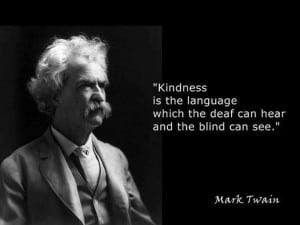I was just coaching a client about her personality type profile and we ended up discussing core values. The subject of core values is a re-o ccurring theme when I do coaching with people, and I’ve come to believe that making a list of your core values may be one of the most important things a person can do.
ccurring theme when I do coaching with people, and I’ve come to believe that making a list of your core values may be one of the most important things a person can do.
The importance of core values originally hit me when I was doing some consulting work with Zappos.com, a company that is celebrated for its culture which it regularly attributes to having strong core values. After having the privilege of observing the Zappos bootcamp (a workshop set up to teach other companies how to shape their own culture) I became pretty convinced of the importance of creating core values in every company. It’s clearly a cementing element that is powerful for both vetting potential employees as well as keeping current employees in sync.
I was almost embarrassed when it dawned on me that what’s good for company policy is doubly true for individuals.
Companies create core values as a compass for employees to use when making executive decisions. Does this decision about direction match our core values? Does this prospective employee share the same core values as the company? Core values become a map for guiding everyone along and humanizing the corporate experience.
 On a far more personal level, core values easily do this for us as individuals. What direction should we be taking life? Is this opportunity something we should jump on? Who do we align ourselves with? Each of those major, tough, life-altering questions we struggle with regularly are made vastly easier when we already know what our core values are and use them as a finely tuned instrument.
On a far more personal level, core values easily do this for us as individuals. What direction should we be taking life? Is this opportunity something we should jump on? Who do we align ourselves with? Each of those major, tough, life-altering questions we struggle with regularly are made vastly easier when we already know what our core values are and use them as a finely tuned instrument.
What’s so special about them? While we all have values and things we believe in, core values are marked as characteristics we believe in regardless of context. Removing context forces us to ask ourselves, “What is it I believe is true and right no matter what the situation is?”
Personally, this question haunted me for six months. I made lists and then threw them away and made other lists. I created distinctions and clean sliced values I had previously believed were the same thing. It challenged me in ways that kind of surprised me, actually.
For example, I realized that –from my perspective – there’s a real distinction between ‘niceness’ and ‘kindness’. I used to believe it was extremely important to be nice to other people and originally had it as one of my values, until it dawned on me that I don’t think it’s important or right to be nice in every context. Someone attacks someone I love, and niceness is not going to be my response. The more I thought about it, the more I realized that niceness isn’t about how I behave to other people it’s more about reputation, i.e. “Antonia is a nice person.” Kindness, on the other hand, IS about other people. I define kindness as doing what is in another person’s best interest no matter what. That means saying and doing potentially hurtful things if that’s what is in the other person’s best interest. The ‘someone’ that attacks ‘someone I love’ is going to see me behave in a ‘not nice’ way, and if you consider the cost of enabling bad behavior it’s not a stretch to see that as a kindness. To put it another way, sometimes you have to be cruel to be kind.
Kindness, then, became one of my core values. It’s important to me to treat other people in a way that promotes health in them. Obviously, what’s ‘kind’ is open to interpretation. And I’m definitely not perfect at knowing what the kind act is, but I study, focus and keep it as a priority in my li fe.
fe.
Another distinction that emerged was the difference being honest with all people at all times, versus being radically honest with myself at all times. At some point in creating my list I realized that honesty with others isn’t a core value – there are times when I think it’s entirely appropriate to lie and I wouldn’t hesitate to do so. (i.e. The Gestapo boots my door down and asks if there are Jews hiding the attic. The answer would always be ‘no’.)
However, it IS a core value of mine to be radically honest with myself. That means being sensitive to and rooting out cognitive dissonance – the state where you tell yourself a story you know isn’t true because it gives you a secondary payoff… even if not all of you is buying it. Over the past few years I’m as sensitive to cognitive dissonance as I am to errant eyebrow hairs I need to tweeze. When I spot one, I do my best to pull it out. And, like eyebrow hair, it usually smarts.
Of course, I’m not even close to perfect at it. Even now I’m telling myself stories I want to believe regardless of their Truth. Again – it’s not about being flawless, it’s about keeping these core values on your radar and being increasingly sensitive to them. Building them like a muscle and being prepared to call upon them in those moments which require your character to be shown.
When I have a major decision to make I first vet the situation for its internal honesty, and then I ask myself if the result will be in everyone’s best interest, knowing I’m part of ‘everyone’ and there’s no need to be a martyr or throw myself under a bus. The core value of kindness has created a lot of win-win situations in my life, and the core value of radical internal honesty has helped me remove myself from toxic situations. They both serve me well.
If you haven’t yet, I highly recommend working on your own list of core values. If it takes some time, that’s a good thing. It means you’re really getting to the ‘core’. And remember to be conscientious of values you’ve borrowed from other people in your life. Outsourced values make terrible core values.
For those of you who know what your core values are, make a comment! Help get other people started.
Cheers!
-Antonia
p.s. Try this exercise to create your list of core values:
1. Read through Steve Pavlina’s “list of values” found here.
2. After letting them sink in, write what’s called a “list of a hundred.” That is, find a quiet place where you can think and focus and give yourself five minutes to write down every value you feel is important. (Make sure you time it – the point is that you’re reaching into your unconscious mind to help, and a little ‘racing against the clock’ seems to bring this out.)
3. Comb through your list and ask yourself “do I believe this value is true and right in ALL contexts?” Cross off the ones that don’t meet this criteria.
4. With your remaining list, hang it up somewhere that will catch your attention frequently – the bathroom mirror, the refrigerator, etc… Does this list hold up over time? Does it ‘feel’ right? Is it missing something? Only you can ultimately determine what makes the list.
5. Now watch yourself – do you stay in alignment with your core values? What can you do bring greater awareness and consistency with your core values into your life?
Want to learn more?
Discover Your Personal Genius
We want to hear from you. Leave your comments below…
When you’re ready, here are five ways we can help you grow…
1. Reclaim Authorship of Your Life (Free Audio): Become the Main Character Your Own Life
2. Regulate your Body, Emotions, Thoughts, & Intuition with Self-Regulation Mastery
3. Understand yourself at a deeper level with a Personality Owners Manual
4. Master the Art of “Deep Reading” people in Profiler Training
5. Rewire your Brain & Build a Life that Fits You in the Personality Life Path

Share:
The Formula for Happiness and Thanksgiving
13 Quotes that Could Change Your Life (Part I)
10 comments
Are there correlations with cognitive functions and core value/s?
i.e for INTJ would core values be perspectives and effectiveness, or ENTP exploration and accuracy, etc.
I would totally agree with this. Which is why it’s not a simple ‘open and shut’ case with anything. Thoughtfulness and good will also make my list, which means behaving in a way that comes from love and the attempt to see things from other people’s perspectives however fallible that may be.
Nothing is 100%. But it’s really not about the other person as it is about keeping the intention to be the best version of myself. Doing good in the world is the run-off high quality people create. It’s my intention to be that kind of person.
Always playing nice didn’t seem to help me reach that goal.
A
Just a note on one of your points. It is all well and good to behave in another person’s best interest, as long as we recognize that we can only act on our perception of what is in another person’s best interest. Defining another person’s best interest is, at best, morally problematic.
Great list!
Great to bring up this topic, Antonia. I created my list a few years ago and you’ve reminded me to check them out – they’re bluetacked to the wall on my right!
Autonomy – am I being self-responsible and aware; am I exercising choice and integrity?
Intuition – have I accessed my God-consciousness and inspiration?
Love – is my heart filled with joy, peace, harmony and unconditional love?
Observation – have I looked, listened and communicated through the interface with ‘reality’?
Facility – am I in my flow; is living ‘easy’; is my movement easy?
Freedom – am I spiritually confident; is my body/mind healthy; is this healthy for everyone?
I have foud these core values very useful in making decisions through the last few years.
Cheers
Astarte